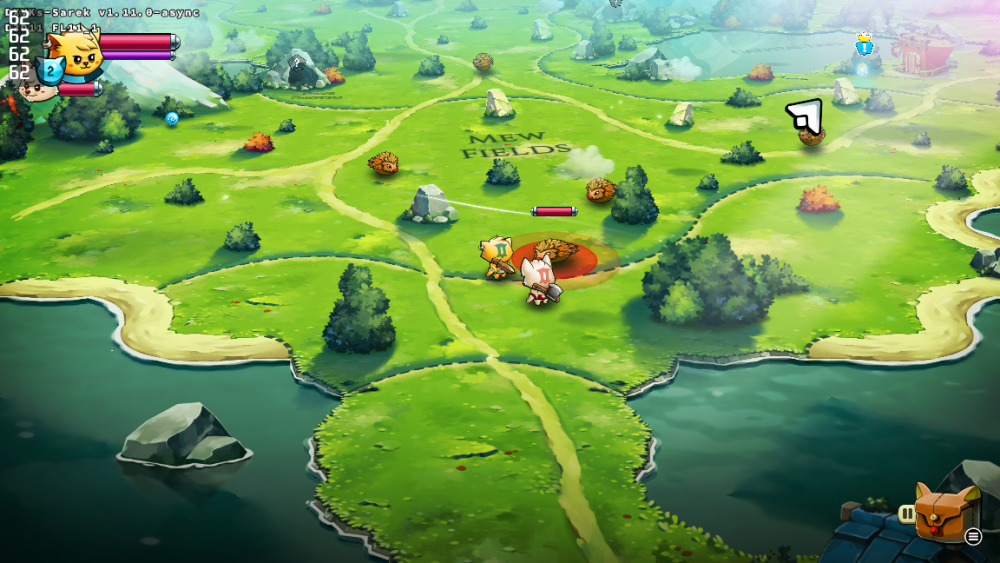Active threads
Showing topics posted in for the last 365 days.
- Past hour
-
In case everyone else is interested: the easiest way I found to get a running system with the latest kernel is Start with an image based upon the vendor 6.1 kernel (I used "Armbian_25.8.2_Orangepi5_noble_vendor_6.1.115_minimal.img.xz") Once it's running, launch "armbian-config" Choose "System", then the entry to install a different kernel Now you can select the latest kernel, in my case "6.18-RC5" Just for the records, I was interested in trying the latest kernel because, with the vendor-provided 6.1.99 kernel, my NVMe drive was limited to 400 MB/s ("downgraded link speed"). Unfortunately, the same applies to the latest 6.18-RC5: probably a DTS issue, but I don't know how to fix it, so be it. Best, Fernando
-
Digging deeper @Igor... I tried 25.11.1 Noble Gnome Vendor 6.1.115 from today, and am also seeing Mali-G610. However it's [disabled for xfce](https://github.com/armbian/build/blob/d2e208ace18b8003f926057ddfc038f8cce0bce0/extensions/mesa-vpu.sh#L19). I'm also reading some conflicting info so guessing there have been other conversations I'm not aware of. I started another post to try and better understand expectations.
- Today
-
I understand that panthor is not supported for wayland but in that case I would expect libmali to fill in... but I ended up with lvmpipe. The overlay along with another recent post led me to believe that panthor was the expected default and libmali was an artifact, but I'm now questioning that after finding a thread identifying use cases where libmali can be preferred and a comment suggesting panthor wouldn't be available until 6.13. As a result, I am now questioning if there is a reason that software acceleration is the default and the user is expected to determine which path they want to go? I know support for the hardware has been slow going so I understand that it's not well supported yet, but hoping to get a better handle on expectations. Is there an expected default for a Rockchip RK3588 SoC with the Mali‑G610 GPU? Does it vary between 6.1/6.12 and the desktop/server builds?
-
I never said it was a Debian issue (you failed to mention which userspace you were running in your original post, btw). The issue is with whereever you got your authelia package from (which you also failed to mention). You also failed to mention what error exactly you are running into. But yes, you are right, Debian will and can do nothing about it. Basically the same is true for Armbian, the symlink is there for a reason and there to stay. You are in the wrong place to get this fixed.
-

Driving the ili9488 LCD (4.0 inch cheap chinese clone)
robertoj replied to robertoj's topic in Allwinner sunxi
If you already checked "dmesg|grep panel-mipi" and "dmesg|grep spi", check this: * share which LCD you are using. Half of those LCDs are waveshare clones, which need a different driver. My DTS works in the RED LCDs. * Look at the uboot messages in the serial port output. Does it confirm it is finding your dtbo and using it? * verify that panel-mipi-dbi.ko exists in the modules folder. I know it is not preselected by default within the linux configuration menu * Search the word "pinctrl" in this thread https://forum.armbian.com/topic/44191-orangepi-zero-lts-ili9341-tft-lcd-and-later-orangepi-zero-3/#comment-204741 To confirm that the kernel driver is using the gpio and spi pins * send link of the rock3c DTS you are referencing, to see an example of how GPIOs are configured * correct the gpio pin map you shared. Instead of tx/rx, use MOSI, MISO. Highlight and label clearly the CS0, CS1, RESET, DC, IRQ * explain how those gpio numbers gpioX,XX transform into the DTS gpioX XX 1/0 If you at least get noise in the LCD, you are 50% done (and maybe you will get lucky in the last 50%) -

20USD 4GRAM RK3528 host (cheap dq08 tvbox)
alex001gg1 replied to fensoft's topic in Rockchip CPU Boxes
Just answer it... Will i have malware if i installed it on my tv box H96 max RK3528 4gb ram 64gb rom -

Pinebook (non-Pro) battery swollen - No complete start without it?
Jean Berniolles replied to guidol's topic in Off-topic
The schematic propose a 10kohms as NC, that may be an acceptable value. With an barrel plug 5V/3A, I think the laptop should be able to powerup without battery. -
As far as I can tell, Armbian does not support the OrangePi RV2. Where did you get the image from? Or are you really talking about the PC2? RISC or ARM? Big difference.
-

No audio output via I²S (PCM5102) on Orange Pi Zero 2W (H618)
Jose Cardoso replied to Jose Cardoso's topic in Off-topic
Thank you Avenom! I've paused my project. I'm even undecided about continuing to use the Orange Pi Zero 2W. As soon as I find a little more patience, I'll try your suggestion. Thanks again for your post. -
Hi, Thanks for sharing details about the Armbian on x88 Pro and your DIY Cooling Solution. Really useful. May I know what is the name of the image that you have used for this setup from https://www.armbian.com/station-m2/. I tried the recent and archived images. Post burning to SD card, the box is not booting with any of the image.
-
Hello team, I encountered a dependency conflict while trying to upgrade the package armbian-bsp-cli-panther-x2-current to version 25.8.2. The issue seems to be a mismatch in the required version of base-files. Here's a summary of the issue: Attempted upgrade command: apt install armbian-bsp-cli-panther-x2-current Error message: armbian-bsp-cli-panther-x2-current : Depends: base-files (>= 25.8.2) but 25.8.1-12.4+deb12u11-bookworm is to be installed Currently installed version of base-files: base-files: 25.8.1-12.4+deb12u11-bookworm (installed) Available versions for base-files from the repository (apt policy base-files): Installed: 25.8.1-12.4+deb12u11-bookworm Candidate: 25.8.1-12.4+deb12u11-bookworm Version table: 25.8.1-12.4+deb12u11-bookworm 500 25.5.1-12.4+deb12u11-bookworm 500 ... It appears that the repository ( http://apt.armbian.com/pool/bookworm-utils/b/base-files ) does not provide the required version of base-files (25.8.2) for the arm64 architecture. Only the armhf architecture package is available, but armbian-bsp-cli-panther-x2-current depends on the arm64 version. Could you please help investigate the issue or confirm whether the repository will be updated to include version 25.8.2 of base-files? Thank you for your support!
-

Efforts to develop firmware for H96 MAX V56 RK3566 8G/64G
王类 replied to Hqnicolas's topic in Rockchip CPU Boxes
@WINEDS@Hqnicolas Thank you for your help. I will try to see if it can work properly, -

Gaming experience with Orange Pi 5 (RK3588) on Armbian
KhanhDTP replied to KhanhDTP's topic in Orange Pi 5
Armbian 25.8.1 Noble XFCE (BSD Kernel: 6.1.115) + PanVk - mesa 25.3 (https://launchpad.net/~kisak/+archive/ubuntu/kisak-mesa) + box64 3.9 (https://ryanfortner.github.io/box64-debs/) + wine-10.19-staging-tkg-amd64-wow64 (https://github.com/Kron4ek/Wine-Builds/releases/tag/10.19) + DXVK-sarek-stripped v1.11.0 (https://github.com/pythonlover02/DXVK-Sarek/actions) ~60fps@1080p Cat Quest II -

fail install of xfce desktop on odroidxu4
dev001 replied to dev001's topic in Software, Applications, Userspace
i use a usb to 3.5mm headphone adapter. - Yesterday
-
Problem is in Balena decompression of xz files. Use USB imager or something else (or 2 years old version of Balena). It will work. We filed bug when it was discovered, but it was not fixed by this day. We can't fix this app for them ... BTW. Its all here: https://docs.armbian.com/User-Guide_Getting-Started/#flash-to-sd-card
-

RTC running on current Armbian release??
Scott Ksander replied to Scott Ksander's topic in Amlogic meson
Thanks for the tips. The following overlay works on a c2 /dts-v1/; / { compatible = "amlogic,meson-gxbb"; fragment@0 { target-path = "/aliases"; __overlay__ { i2cA = "/soc/bus@c1100000/i2c@8500"; }; }; fragment@1 { target-path = "/soc/bus@c1100000/i2c@8500"; __overlay__ { #address-cells = <1>; #size-cells = <0>; pcf8563: rtc@51 { compatible = "nxp,pcf8563"; reg = <0x51>; status = "okay"; }; }; }; }; -

Setup for current Armbian/Ubuntu (25.8.2) for PCF8563 RTC on C2
Scott Ksander replied to Scott Ksander's topic in Odroid C2
Turns out the secret was getting the address and symbols right in the device tree. I create the following as meson-pcf8563.dts, compiled into meson-pcf8563.dtbo, moved to /boot/dtb/amlogic/overlay, and added pcf8563 to the "overlays" line in armbianEnv.txt. /dts-v1/; / { compatible = "amlogic,meson-gxbb"; fragment@0 { target-path = "/aliases"; __overlay__ { i2cA = "/soc/bus@c1100000/i2c@8500"; }; }; fragment@1 { target-path = "/soc/bus@c1100000/i2c@8500"; __overlay__ { #address-cells = <1>; #size-cells = <0>; pcf8563: rtc@51 { compatible = "nxp,pcf8563"; reg = <0x51>; status = "okay"; }; }; }; }; -
It is now.
-
Hi, In 2025, Helios64 is now stable for me and for my brother, who also uses it. The only thing to do is, just after installation or after any upgrade, you must reinstall the special file rk3399-kobol-helios64.dtb-6.12.xx-L2-hs400-opp because I think the specific tuning in this file is not included in the official image. For me, I suggest keeping it, using it, and saving your money for other things. Bye.
-
should be fixed with https://github.com/armbian/build/pull/8980
-
Good day all, After compiling a build for my TV box and burn it to the SD boot process stuck to Begin: Mounting root file system ... Begin: Running /scripts/local-top ... done. Begin: Running /scripts/local-premount ... Scanning for Btrfs filesystems Can someone help please solving the problem?




